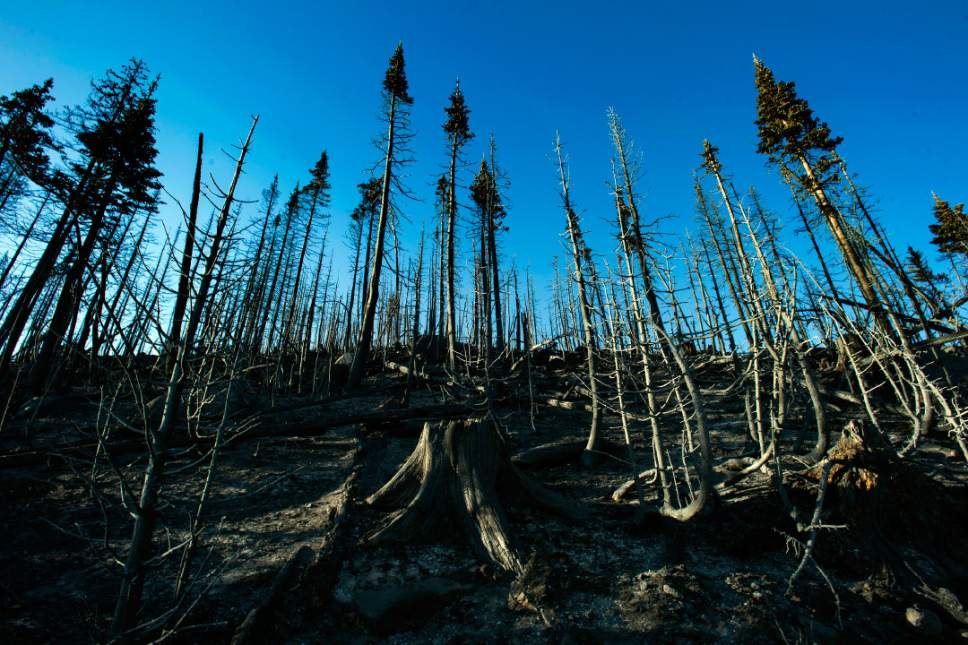This is an archived article that was published on sltrib.com in 2017, and information in the article may be outdated. It is provided only for personal research purposes and may not be reprinted.
In the wake of the massive Brian Head Fire, Utah officials on Thursday moved to secure a meeting with U.S. Agriculture Secretary Sonny Perdue to talk about ways improved forest management practices and other measures might prevent future catastrophic fires.
Garfield County Commissioner Leland Pollack initiated the request for an audience with Perdue amid a state Constitutional Defense Council discussion of the nearly 72,000-acre fire's impact on his county.
The human-caused fire has left ranchers without range land for grazing cattle and sheep, devastated the local tourism industry and put the local watershed at risk of contamination from the ash-filled runoff that will now flow into Panguitch Lake, Pollack said.
"We've got some major concerns," Pollack said, before asking the state for help with economic recovery for business owners and whether it has a sense of how the mountainsides scorched by the fire will be re-seeded and rejuvenated.
Pollack contends the human-caused fire would not have devastated the public and private lands of the Dixie National Forest if the federal forest service had been engaged in land management activity such as logging to thin timber stands and treatment for vegetation and watersheds — activity, he said, that had been shut down by environmental litigation.
"We've been talking about catastrophic fires for years and warning and warning and warning, to no avail," he told the commission. "Active forest management has to happen. That's the only way."
Pollack's suggestion prompted Lt. Gov. Spencer Cox to send an email to Gov. Gary Herbert's staff, asking them to initiate a meeting request with Perdue's office. Before Thursday's discussion was over, Cox reported the wheels were in motion.
Pollack said a delegation of Utah leaders, including Herbert, state lawmakers and key commissioners from "public lands counties" should be at the table if and when a meeting with Perdue takes place.
"I think that this is perfect timing," Pollack said. "I really do, because I think we'll have his ear."
Cox said state officials had already begun a conversation about ways to encourage the return of tourists and to help businesses in fire-affected areas recover their losses. Cox offered to expand those efforts by reaching out to the Governor's Office of Economic Development and its rural area experts for more assistance.
Utah Department of Natural Resources Director Mike Styler also assured Pollack that a "burned area emergency response team" was already on the ground assessing the steps needed to restore the vegetation.
"We are going to be re-seeding as soon as the team finishes up their triage," Styler said.
That should help alleviate some of the concern over damage to the watershed, he added, because new grasses and other plants will stabilize the soil.
"There are many resources that are going to work on this," Styler said.



